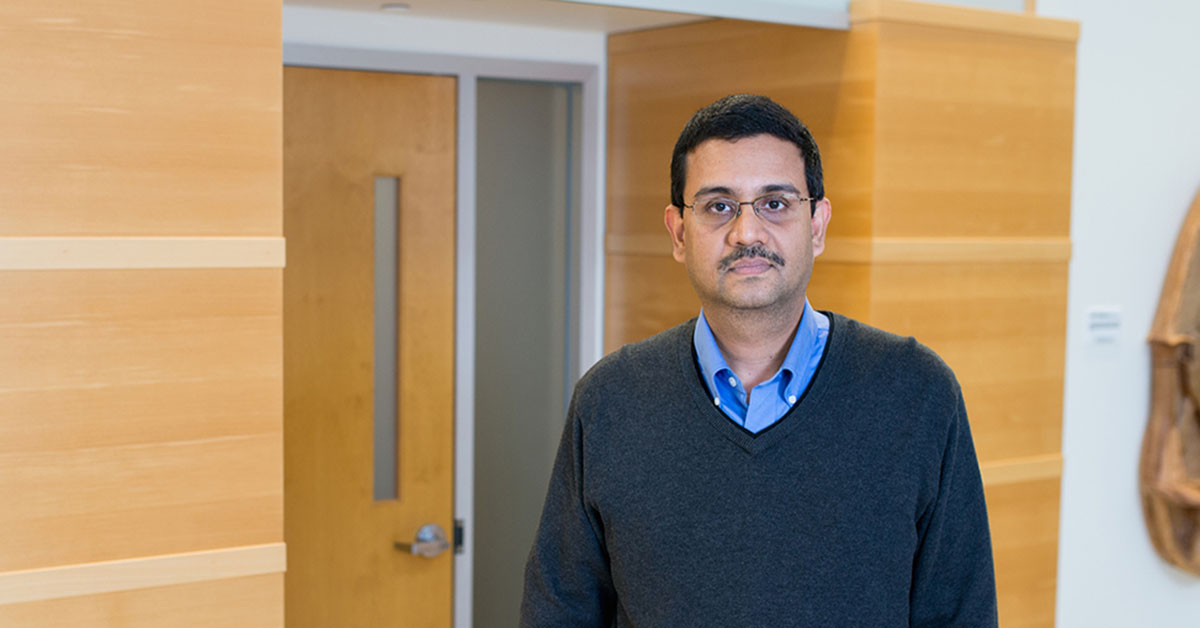
PHILADELPHIA (September 27, 2021)—In a recent study, a researcher at Fox Chase Cancer Center outlined new methods for predicting cancer survival and outcomes from studies that utilize large-scale genomic profiling of tumor samples from different cancers.
Genomic profiling is a process used to understand the way genes interact with each other and the environment of a specific individual. It can be used to develop new methods of monitoring, diagnosing, and preventing diseases such as cancer by identifying specific genomic features that are unique to an individual.
The newly developed methods calculate a prognostic index, a tool that is critical in predicting survival outcomes. This is particularly important because there are several challenges researchers face when using standard statistical methods in analyzing and interpreting the effect of genomic profiles on cancer outcomes.
“The number of such genomic markers of interest far outnumbers the subjects that can be followed up clinically. Moreover, there is empirical evidence indicating that the effect of some features increases or decreases a patient’s risk over time,” said Karthik Devarajan, PhD, an associate professor of population science in the Biostatistics and Bioinformatics Facility at Fox Chase.
Devarajan is also an adjunct associate professor in the Department of Clinical Science at the Lewis Katz School of Medicine at Temple University. Both the medical school and Fox Chase are part of Temple University Health system. His co-author on the study was
Lauren Spirko-Burns, PhD, an assistant professor in the Department of Statistical Science at Temple University.
The factors that Devarajan describes make it difficult to apply standard statistical methods such as the Cox proportional hazards model, which is commonly used to estimate the association between survival time and genomic features. This model assumes that each genomic feature of a tumor results in a constant risk of death, disease progression, or recurrence over the entire period of follow up in a study, an assumption that cannot be verified or likely to hold for each feature.
Such an incorrect assumption can lead to underestimating or overestimating the effects of certain genomic features in predicting survival. For this reason, it is important for statistical methods to be able to distinguish between features that suggest a constant risk of death or recurrence from those that have a time-varying effect.
“Our prediction models are designed to handle the large volume of genomic data, incorporate censored information, account for confounding clinical factors, and relax the fundamental assumption of constant impact of a genomic feature on a patient’s risk over time,” said Devarajan. “Most importantly, the models are interpretable in terms of the prognostic index and offer a significant improvement over black-box prediction models that are currently available.”
He added that by developing interpretable prognostic models that more accurately identify genomic markers predictive of survival outcomes, their work could aid in the design of genomic panels that are specific to different cancers, which, in turn, could lead to improved and personalized cancer treatments. Additionally, Devarajan said the methods are broadly applicable to a variety of large-scale modern “omics” studies that go beyond genomics.
The study, “Supervised Dimension Reduction for Large-Scale ‘Omics’ Data With Censored Survival Outcomes Under Possible Non-Proportional Hazards,” was published in IEEE/ACM Transactions on Computational Biology and Bioinformatics.